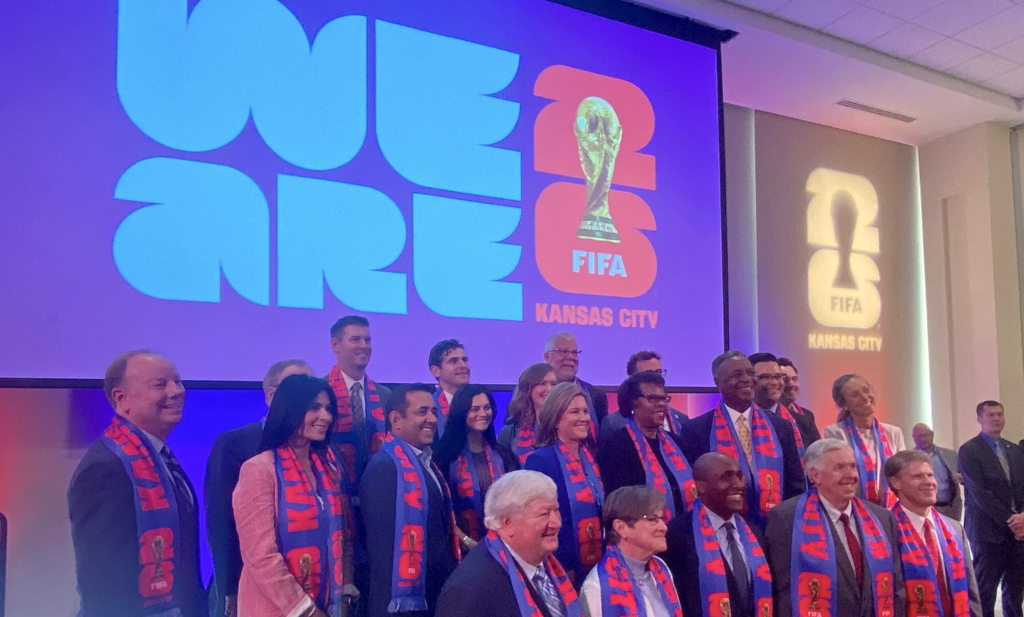Giving Thanks

Equal parts demure grace, fiery passion and refined elegance, Kansas City’s resident diva Ida McBeth has crafted her remarkable gift for interpretation into an art. For 35 years, she has played a vibrant and active role not only in furthering the city’s enduring reputation as a fertile breeding ground for vocalists, but also in preserving its rich musical heritage. Yet even an established artist such as McBeth feels the nagging pangs of jazz traditionalism.
“I hesitate to call myself a jazz singer,” McBeth confesses. “There always seems to be someone that’ll say, ‘She doesn’t sing jazz; she sings R&B’ or ‘She sings gospel.’ Instead, I prefer to call myself a song stylist.”
Over the years, McBeth has come to embrace a wide range of styles, each representing an inimitable avenue for expression while imposing a unique set of challenges.
“I’ve always loved R&B,” McBeth says. “Gospel was the first thing I learned, and I didn’t pick up jazz until later. The blues was the last style I learned how to sing, and it’s not something you learn to sing well when you’re young. It doesn’t make sense; it doesn’t sound right. But I’ve lived my life. I’ve seen the good times and the bad. When I sing that I’ve had the blues, trust me honey, I have had the blues.”
As McBeth’s stylistic repertoire has evolved, so has her approach to her work. From her days as a KU nursing student and aspiring performer to her status now as one of Kansas City’s pre-eminent jazz ambassadors, the effusive vocalist has found that the heart and soul of her music must reside close to her own.
“Lots of things have changed,” McBeth says. “I never sing a song where the lyrics don’t mean something to me. When I recorded ‘I Will Survive,’ I was going through a tough time with my divorce, and I believed in that song. I believed in the lyrics. I can’t sing songs when I don’t.”
Such dedication to sincerity, no matter how revealing it might be, is at the core of McBeth’s renown among aficionados nationwide and abroad. This past year, as part of the annual Blues Al Femminile festival (a two-week showcase held in the Piemonte region of Italy), she realized just how powerful that commitment to her craft could be for an audience. Even while enduring unexpected health difficulties, McBeth managed to weave her characteristic magic, including a performance in Turino that stands out in her mind as one of her most memorable.
“I ended up in a hospital in Italy, and I was diagnosed with rheumatoid arthritis, which I didn’t even know I had,” McBeth says. “I ended up performing at this huge place that evening, and I wasn’t sure if I was even coming across well. At the end of the night, I got a standing ovation. After everything else that had happened, that was really special.”
On the subject of less-satisfying performances, McBeth remains guardedly coy, instead recalling how a jazz legend once dealt with a tough room.
“One time I went to see Ella Fitzgerald when she came to Kansas City,” McBeth says with a fond laugh. “During her show, she stopped the band and addressed some people who were sitting in the front, talking rather loudly and disrupting people around them. Ella asked them quietly if her singing or if her band was bothering them. When they said no, she politely replied that their talking was bothering her. Of course, the audience started to applaud, and she went on with the show. Those are the gigs that are the worst, when people are being rude and not listening. I’ve always wanted to be able to say something to those people when they do it, but I guess I’ve never found a way to do it as nicely as Ella did.”
Making her way through tough nights onstage and rising to the challenge of making ends meet as a professional musician, McBeth has seen plenty of ups and downs over the course of her career. As a member of the Kansas City scene for the vast majority of those years, her take on the city’s slipping interest in jazz is particularly insightful.
“Kansas City’s reputation as a jazz town is in jeopardy,” McBeth says, “but I think the folks down at 18th and Vine have done a lot to keep it alive with the Gem and the Blue Room. People need to get down there and see what’s happening with the American Jazz Museum and put their money down in support. There are other places, too. It’s hard because the number of clubs that regularly feature live jazz is shrinking, and considering the amount of talent that is in this town, that makes things even harder because we’re all scrapping over the same jobs. It’s also forced a lot of great talent out of town to find work elsewhere.”
In terms of salvaging the town’s persona as one of the rare crossroads for jazz and the blues, McBeth believes that it’s going to take more of a grassroots effort to turn things around.
“People need to get out and look for good music, support the scene,” McBeth says. “I hate the word local. People use it like it’s something to be ashamed of, like, ‘Oh, so-and-so is just a local.’ Good music is good music, and there still happen to be a lot of good musicians around.”
McBeth’s upcoming performance at the Blue Room marks two milestones for the self-proclaimed song stylist. Besides being the 35th anniversary of her career as a performer, it’s also her birthday. To commemorate these events, the evening’s performance will be recorded and filmed for a future CD and DVD release.
“I’ve never done a live recording, so I’m really excited,” McBeth says enthusiastically. “We want to record a lot of the things people have been wanting me to record for a long time. I’m hoping that Thanksgiving night, after everyone has had their turkey and has seen the Plaza lights go on, they’re going to be ready to listen to some music. I think it’s going to be a real special night.”
For McBeth, the holiday is also a chance to reflect on what she has to be thankful for as an artist.
“Kansas City has always been my home,” McBeth says. “I grew up here. I have a child here. I’m so blessed that I can make my living here when so many others have had to go elsewhere.” McBeth stops to consider her words briefly before finishing with a resolute sense of gratitude. “I thank the Lord to be alive, I’m thankful to be doing what I love, and I’m thankful to be able to do it in Kansas City.”




